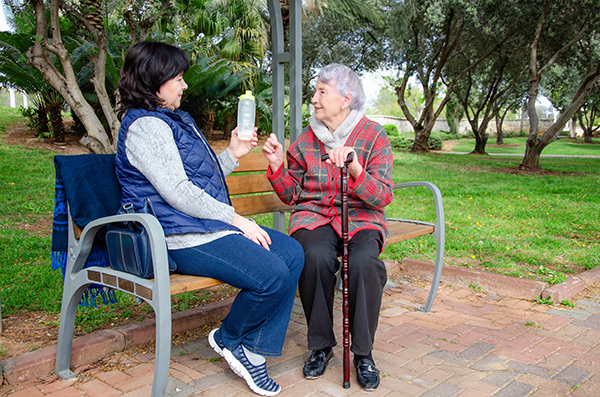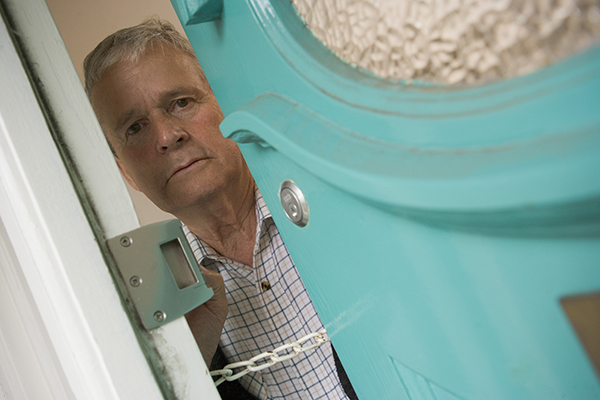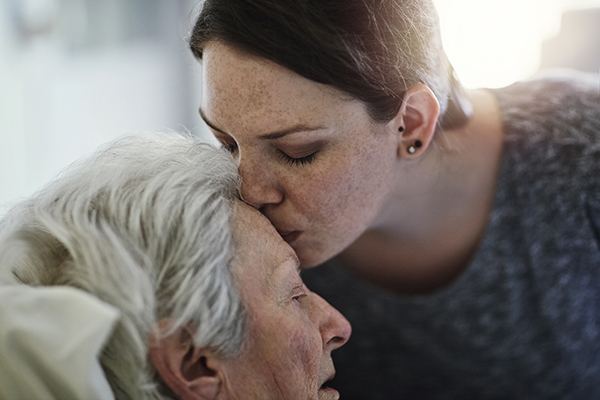Dementia
Avoid These 5 Ways That Worsen the Symptoms of Alzheimer’s
It’s important to be aware of several key triggers that can worsen the symptoms of Alzheimer’s.
While there are a number of commonalities, the symptoms of Alzheimer’s can impact each individual differently. Our highly trained dementia caregivers know, for instance, that while one person may appreciate being outdoors, another may be overwhelmed by so much sensory input and prefer a quieter indoor environment. One may appreciate a morning bath routine, while a dose of resourcefulness is necessary to help a different individual maintain good hygiene.
We also realize there are certain triggers that may often worsen the challenging aspects of Alzheimer’s disease. Family care providers should be particularly careful to avoid the following:
Dehydration. Someone diagnosed with dementia might not be able to identify when they are thirsty, or may refuse when offered fluids. It’s vital to ensure appropriate … Read More »
Warning: These Common Medications May Increase Dementia Risk
Certain medications may now be linked to an increased dementia risk.
They are currently recognized to cause various short-term side-effects, for example, memory issues and confusion, but new research links some of the stronger anticholinergic drugs (like those prescribed for Parkinson’s disease, epilepsy, depression, and overactive bladder) to a markedly higher dementia risk.
The research involved two groups of seniors: 59,000 patients with dementia, and 225,000 without. Approximately 57% of those with dementia, and 51% without, were supplied a minimum of one (and up to six) potent anticholinergic medications. Considering other established dementia risk factors, the outcomes were an astounding 50% increased risk of dementia in individuals who were taking strong anticholinergics daily for three or more years, with the highest risk to people who received a dementia diagnosis before age 80.
It is critical to note that … Read More »
7 Ways to Ease Hygiene Care for Someone with Alzheimer’s
Make hygiene care for someone with Alzheimer’s more comfortable with these tips.
Of the numerous challenges related to caregiving, the Alzheimer’s Association indicates that the most prevalent challenge is hygiene care for someone with Alzheimer’s, for various reasons:
Decreased sense of vision and smell
Comfort found in familiarity (i.e., desiring to wear exactly the same clothes repeatedly)
The challenges of bathing, compounded by cognitive impairment and confusion
Fear of falling, the noises and feelings associated with the water, and more
Cajoling, arguing, and logical thinking are hardly ever practical strategies with those impacted by Alzheimer’s or another form of dementia. Rather, attempt these innovative techniques if your loved one resists hygiene care:
Arrange the bathroom in advance so that the room will likely be comfortable and you will not have to juggle collecting supplies along with assisting your senior loved one. Warm the … Read More »
Wandering in Dementia: Why It’s Happening and How to Help
Wandering in dementia is one of the most difficult effects to manage, and safety is a top concern.
Of all the impacts of Alzheimer’s disease, one of the most alarming is the individual’s tendency for wandering and the potential dangers that may develop if the senior becomes confused or lost. Wandering in dementia can occur any time the older adult is:
Scared, confused, or overwhelmed
Trying to find someone or something
Bored
Trying to maintain a familiar past routine (such as going to work or shopping)
Tending to a simple need (such as searching for a drink of water or going to the bathroom)
The aim is twofold; to help keep your loved one secure, and also to be certain that his/her needs are satisfied to attempt to stop the want to wander to begin with. Consider the following safety measures if your … Read More »
5 Tips to Effectively Manage Paranoia in Seniors
Paranoia in seniors with dementia can be challenging, but these tips can help.
“I’m telling you, there’s a dog in my closet! I hear it growling all night long. We’ve got to track down its owner!”
Listening to a senior loved one express concerns like this that you know to be untrue is distressing – however, not unheard of. Your first instinct may well be to try and rationalize with the person with a response such as, “Nonsense! There is no way a dog could have gotten into the closet!” However, for various reasons, this could be the least effective technique to handle unreasonable thoughts and paranoia in seniors.
Instead, we at Hired Hands Homecare propose the following tactics which will help bring back a sense of calm and wellbeing:
First, schedule an appointment with the senior’s physician. It … Read More »
4 Reasons to Consider Dementia Care at Home
Seniors with dementia can very often continue to live where they’re most comfortable, with dementia care at home.
While countless older adults are struggling with the challenges of Alzheimer’s disease, an even greater number of family members are trying to cope with providing dementia care at home. Incredibly, nearly 75% of family caregivers are managing their older loved ones’ dementia care needs by themselves, with only 26% reaching out for professional care support.
Caring for Someone with Dementia? Here’s What You Need to Know.
Caring for someone with dementia is easier with help from our experts in elderly care in Pleasanton and nearby areas.
At times, the best lessons in life come through going through them firsthand; yet the wisdom we are able to glean from those who have walked an identical path before us is priceless. If you’re caring for someone with dementia and feeling a bit stressed in this uncharted territory, the guidelines below will help:
How to Respond if You’re Noticing Early Warning Signs of Alzheimer’s
Learn how to best handle addressing early warning signs of Alzheimer’s from our experts in home care assistance in Walnut Creek & the nearby areas.
Our natural instinct when we are picking up on the early warning signs of Alzheimer’s or another type of cognitive decline in ourselves or someone we love is to look the other way, denying that there is a problem. However, the Alzheimer’s Association advises that it’s vitally important to face the issue head-on as quickly as possible, since early diagnosis and intervention allow for the most effective treatment plan to be put into place.
Discover the Astonishing Benefits of Art in Dementia
about the incredible benefits of art in dementia from our experts in dementia care in Pleasanton, CA and the surrounding areas.
They say a picture is worth a thousand words, and when it comes to comprehending the thoughts and feelings of someone with dementia, no truer words have been spoken. Artistic expression is vital for all of us, but the benefits of art in dementia are especially remarkable, including enhanced socialization and physical health, a calmer, more peaceful demeanor, and even improvements in both apathy and self-worth.
Communication Tips for Dementia: Try Nonverbal Techniques
Sometimes, the most effective way to communicate with someone with dementia is nonverbally.
Conversations with a senior battling with all the challenges of Alzheimer’s, especially in the middle and later stages, is often discouraging – both for you and also for the person with Alzheimer’s. Brain changes impede the ability to listen, process, and respond appropriately to conversations, and it is up to us to employ innovative approaches to communicating to more effectively connect with an individual with dementia.
It’s quite a bit easier than it might appear, however. We already communicate nonverbally in many ways:
Touch
Posture and body movement
Eye contact
Facial expressions
Gestures
Personal space
Consider these communication tips for dementia to include increased nonverbal communication into your interactions with a senior loved one:
Offer reassurance through gentle touch. If a senior loved one is comfortable with touch, hold and pat the … Read More »

















